Recently, many people have been “dissuaded” by the high fuel cost of the aircraft when booking air tickets. Some netizens shouted, “Fuel costs have caught up with the ticket price!” Starting from August 5, many domestic airlines adjusted the fuel surcharge collection standards for domestic passenger transportation, and the fuel surcharge for each ticket was reduced by up to 60 yuan. This is the first time that fuel surcharges have been lowered since the resumption of fuel surcharges in February this year.
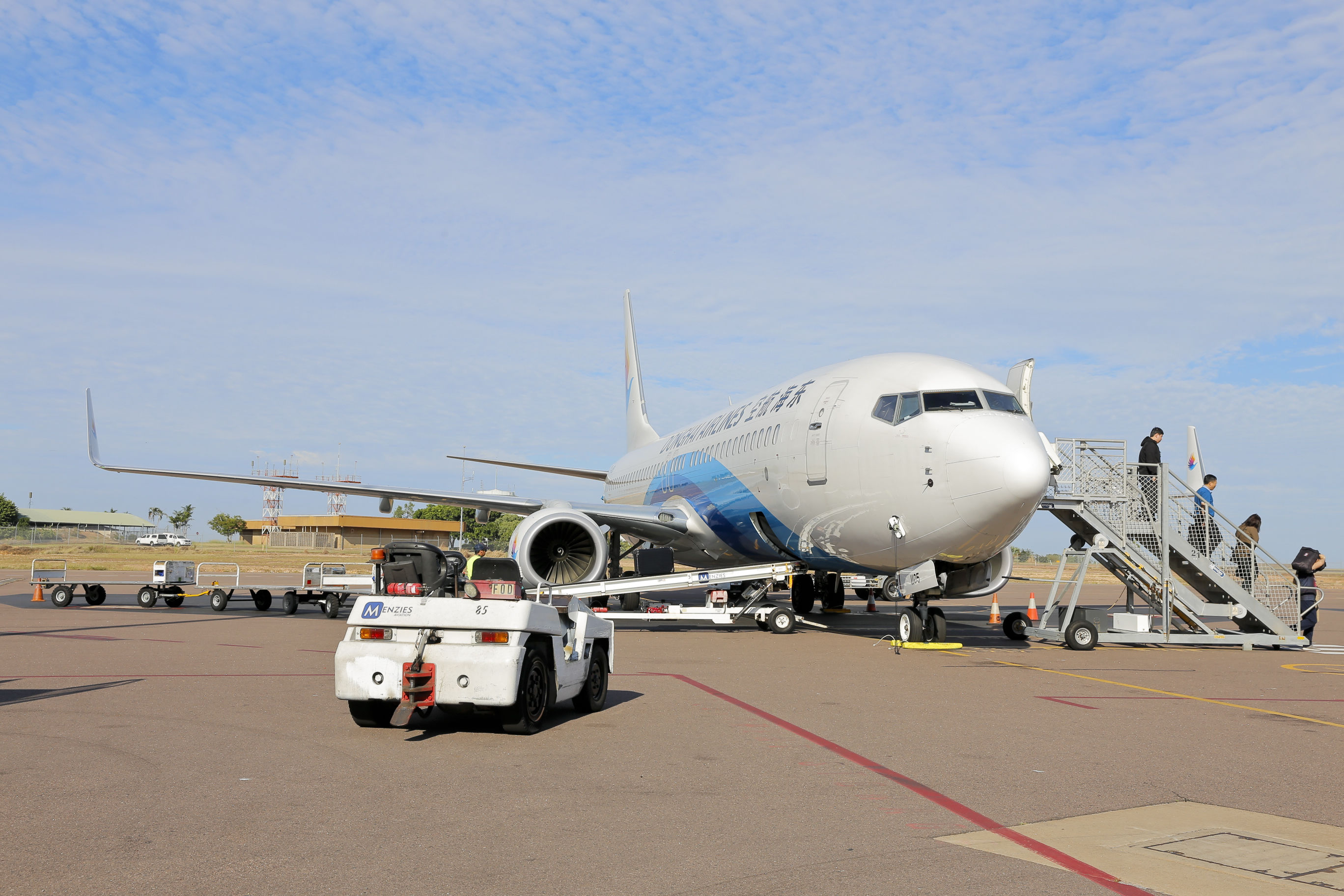
Image from IC photo
First drop this year! Fuel surcharge reduction
Save up to $60 span>
According to a number of domestic airlines, starting today (August 5), the fuel surcharges for domestic passenger transportation will be adjusted. This is the first time fuel surcharges have been lowered since the resumption of fuel surcharges in February this year. Compared with before the adjustment, it has decreased by 20 yuan and 60 yuan respectively. >>>Read more
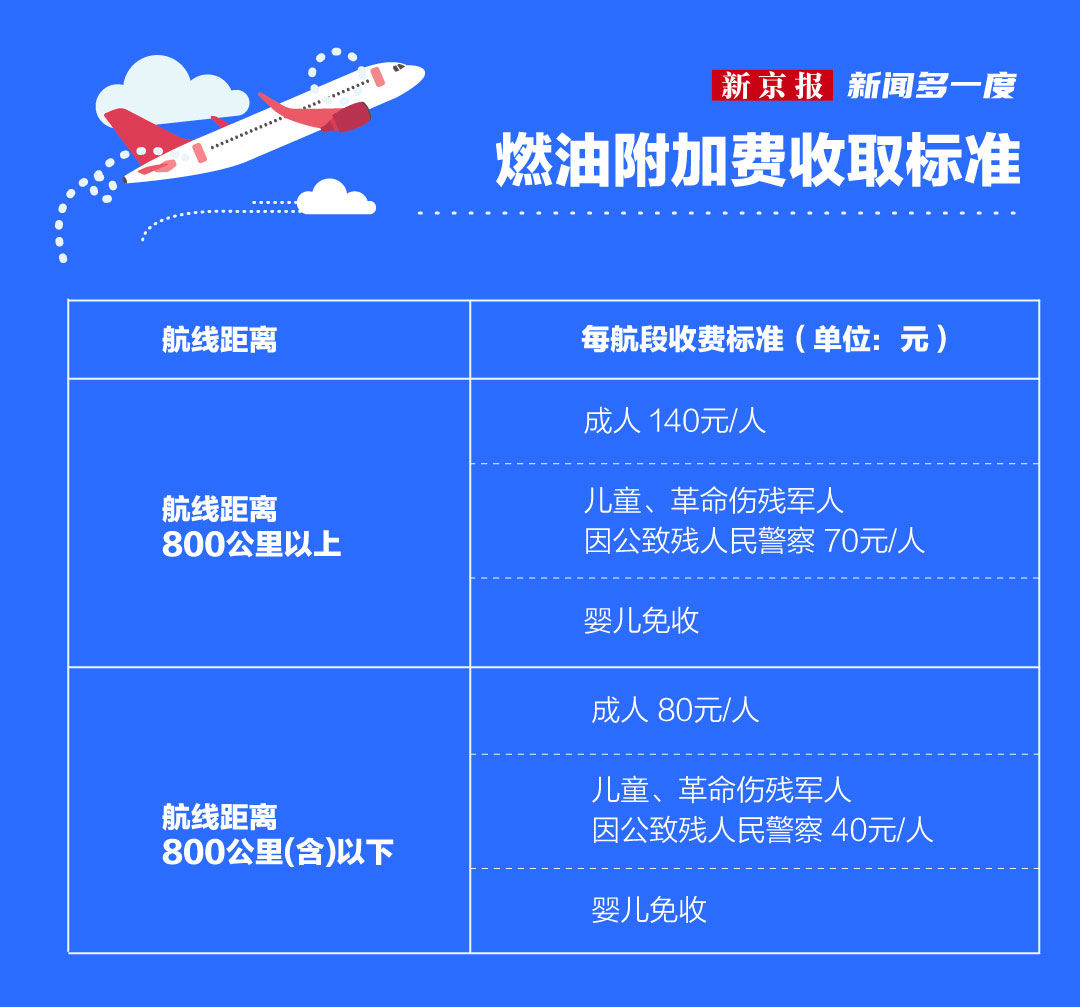
Note: The actual amount charged is subject to the system calculation result.
It is worth noting that in February 2022, airlines resumed the collection of fuel surcharges for domestic routes. The fee collection standard has been raised five times in a row. So far, the fuel surcharge for domestic routes has hit a record high. In just a few months, the fuel surcharge has soared from 10 yuan and 20 yuan at the beginning to 100 yuan and 200 yuan. In previous years, the highest fuel surcharge for domestic routes was only 80/150 yuan.

< p>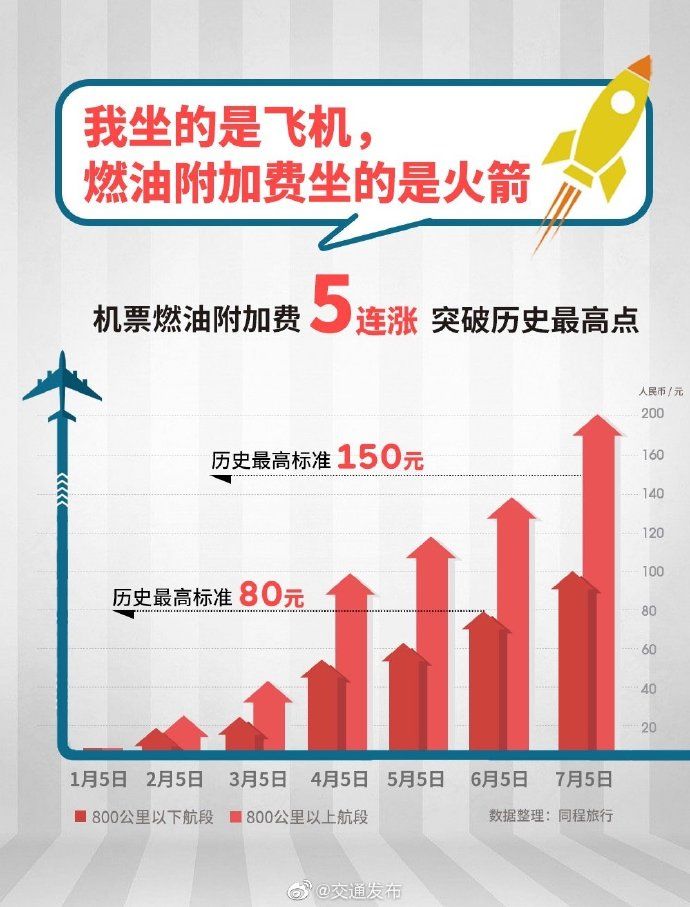
Picture from @traffic release
In fact, the airport construction fee of 50 yuan has not changed, but the fuel accessory fee has risen. After this adjustment, the aircraft construction and fuel surcharges for adult ticket domestic routes are 130 yuan for routes below 800 kilometers, and 190 yuan for routes above 800 kilometers. According to the person in charge of Qunar Tickets, the Qunar platform shows that as of July 28, the average fuel surcharge expenditure of passengers on the platform has increased by 46 yuan per person compared with June, and the cost of fuel surcharges has become one of the factors affecting passenger travel. After this fuel surcharge adjustment, passengers who buy a ticket after August 5 will save a maximum of 60 yuan compared to July 5.
Lan Xiang, Dean of the Qunar Big Data Research Institute, analyzed that the reduction in fuel surcharges is good for the entire industry. First of all, it means that airline fuel Costs have fallen, and flights that were previously cancelled due to cost considerations can now be flown. For passengers, it can directly reduce travel costs, have more travel options, and stimulate travelers’ willingness to travel. From the current point of view, the average fares in the industry have gradually dropped recently. After the fuel surcharges fell on August 5, the combination of two factors will to a certain extent promote tourists’ summer travel .
Read more “Fuel surcharges for air tickets are lowered for the first time this year, saving 60 yuan over 800 kilometers”
< /p>
22-year changes in fuel surcharge collection
Currently, domestic routes have The collection of fuel surcharges adopts a linkage mechanism with the price of aviation kerosene, and the airlines independently determine the specific collection standards within the prescribed scope. Therefore, changes in fuel prices directly affect whether airlines make a decision to levy fuel surcharges.
According to the “Regulations on Adjusting the Base Oil Price of the Linkage Mechanism between Passenger Transport Fuel Surcharge and Aviation Kerosene Price for Civil Aviation Domestic Routes” issued by the National Development and Reform Commission and the Civil Aviation Administration in 2015. Notice”, when the comprehensive procurement cost of domestic aviation kerosene exceeds 5,000 yuan per ton, the air transport enterprise can collect fuel surcharge in addition to the fare in accordance with the linkage mechanism.
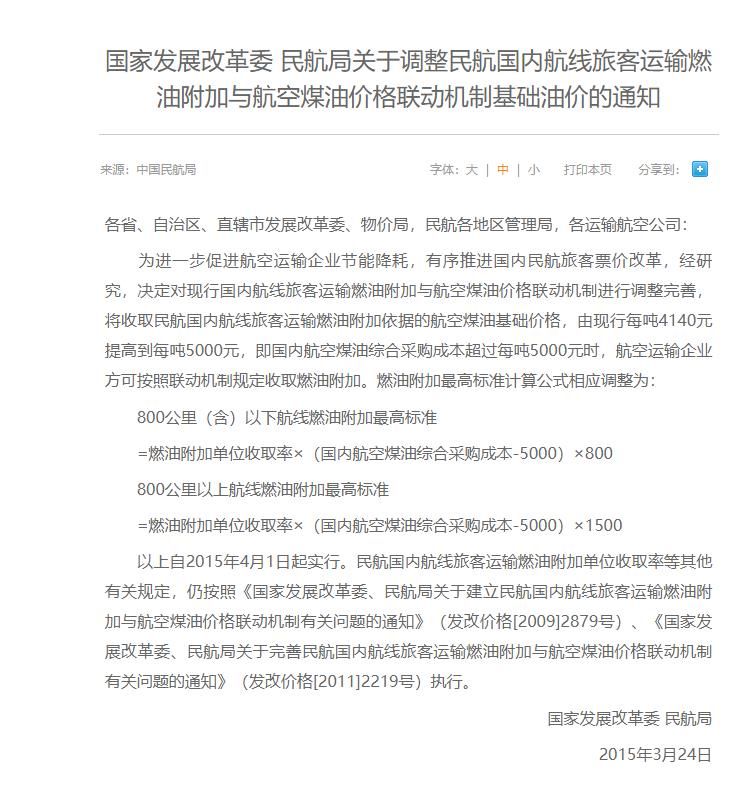
The picture comes from the website of the Civil Aviation Administration< /p>
In November 2000, the domestic aviation industry began to implement the fuel price increase policy. According to the policy at the time, the fuel fee was not levied separately, but was bound to the air ticket. “The domestic flight fare is allowed to rise within a range of not more than 20% of the published fare, and the one-way fare increase shall not exceed 150 yuan at most.” . In addition, referring to international practice, establish a linkage mechanism between domestic airline ticket prices and aviation kerosene price changes. When domestic aviation fuel prices change by 10%, airline ticket prices are allowed to change by up to 3%.
On March 17, 2004, the Civil Aviation Administration issued the “Civil Aviation Domestic Air Transport Price Reform Plan”, allowing the fare to increase by 25% on the benchmark price, and at the same time Cancellation of fuel markup policy.
In 2005, international oil prices rose rapidly, and the operating costs of airlines increased significantlyObviously, in order to appropriately alleviate the pressure of increasing cost of airlines, the National Development and Reform Commission and the Civil Aviation Administration issued the “Notice on the Issues Concerning the Charging of Fuel Surcharges on Domestic Routes” in July 2005, and decided to resume the fuel surcharge for passengers on domestic routes from August 1, 2005. A surcharge will be charged. The charging standard is 20 yuan per passenger for segments below 800 kilometers, and 40 yuan per passenger for segments above 800 kilometers (inclusive).
In the 10 years from 2005 to 2015, the fuel surcharge once reached an all-time high of 150 yuan, and the lowest once dropped to 30 yuan. In February 2015, the domestic fuel surcharge was stopped, and the suspension was three years.
In June 2018, a number of airlines announced that they would start to collect fuel surcharges for domestic routes.
On January 5, 2019, airlines once again suspended the collection of fuel surcharges for domestic routes.
In 2021, the price of aviation kerosene will enter an upward channel. On November 5, 2021, the fuel surcharge for domestic routes, which had been suspended for two years, was re-imposed, but two months later, the fuel surcharge was cancelled due to the drop in oil prices.
In February 2022, airlines will resume the collection of fuel surcharges for domestic routes.
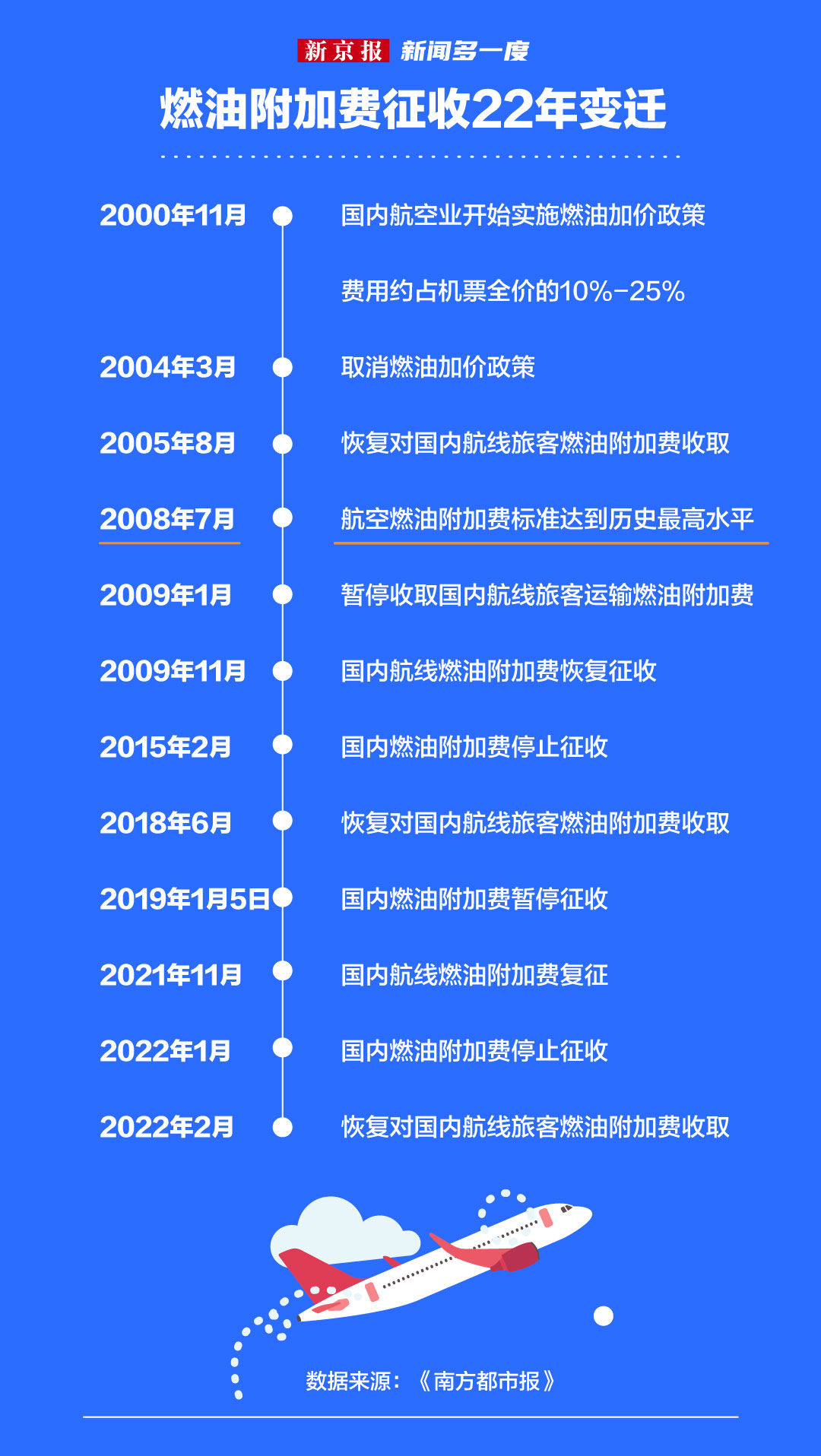
Fuel cost reduction helps summer travel
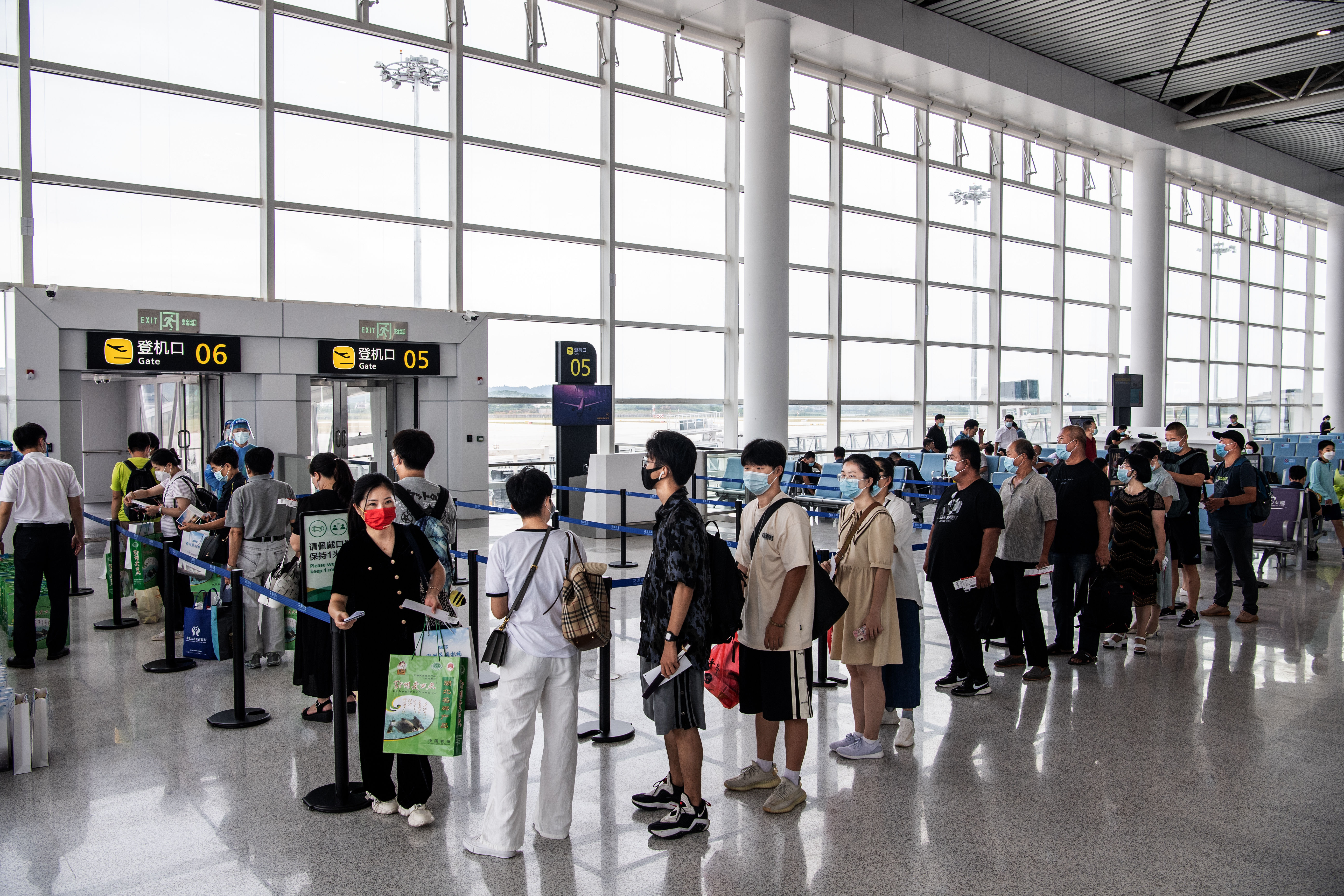
Pictures are from IC photo
This year’s five consecutive increases in fuel surcharges have made people traveling Waiting for the votes. Some netizens said that they met a “fuel assassin” when they bought a ticket, and the price of the fuel fee even exceeded the price of the ticket itself, which caused a lot of discussion. According to Weibo data, as of August 5, the topic of “#machine-built fuel costs are more expensive than air tickets is what kind of experience#” has had 110 million views on Weibo. The adjustment of the fuel surcharge can be described as a good news for travelers who are planning to travel in the summer.
According to CCTV news, with the effective prevention and control of the domestic new crown pneumonia epidemic, the business and tourism passenger flow in some places this summer has gradually increased. Industry insiders predict that early July, early and late August will be the peak of civil aviation bookings. The summer air ticket itself is rising, and the overall cost of air ticket travel is higher when the fuel cost of the machine is added. The reduction of air ticket fuel surcharges will further stimulate the vitality of the air travel market.
Since July, the average daily passenger volume of Capital Airport has increased by 38,000 compared with that in June, and the execution rate of domestic flights has increased significantly. % increased to the current 59%. Passenger load factor increased from 49% in June to the current 59%. With the effective prevention and control of the domestic epidemic, the recent increase in business and travel volume, the increase of flights on many domestic routes, and the steady decline in air ticket prices.
BOC Securities pointed out that the data shows that the number of flights per day in the recent summer transportation has exceeded 10,000, and the civil aviation market has an obvious rebound trend. At the same time, the Yangtze River Delta region has recovered significantly, and key routes have maintained a rapid recovery trend. The passenger throughput of Hongqiao and Pudong airports has increased by more than 100% month-on-month. In addition, airlines are actively preparing for the summer transportation, and it is expected that the summer transportation capacity will recover to 90% before the epidemic.
Zou Jianjun, a professor at the China Civil Aviation Management Institute, said that the tourism market is quite price-sensitive, especially on such lines that overlap with high-speed rail, including branch lines some markets. Its downward revision helps ease that pressure, making air travel relatively more economical now.
Data sources are from the website of the Civil Aviation Administration of China, Xinhua News Agency, CCTV News, Southern Metropolis Daily, etc.
Edit Ma Haoge
Drawing Jia Chenchen
Proofreading Li Lijun